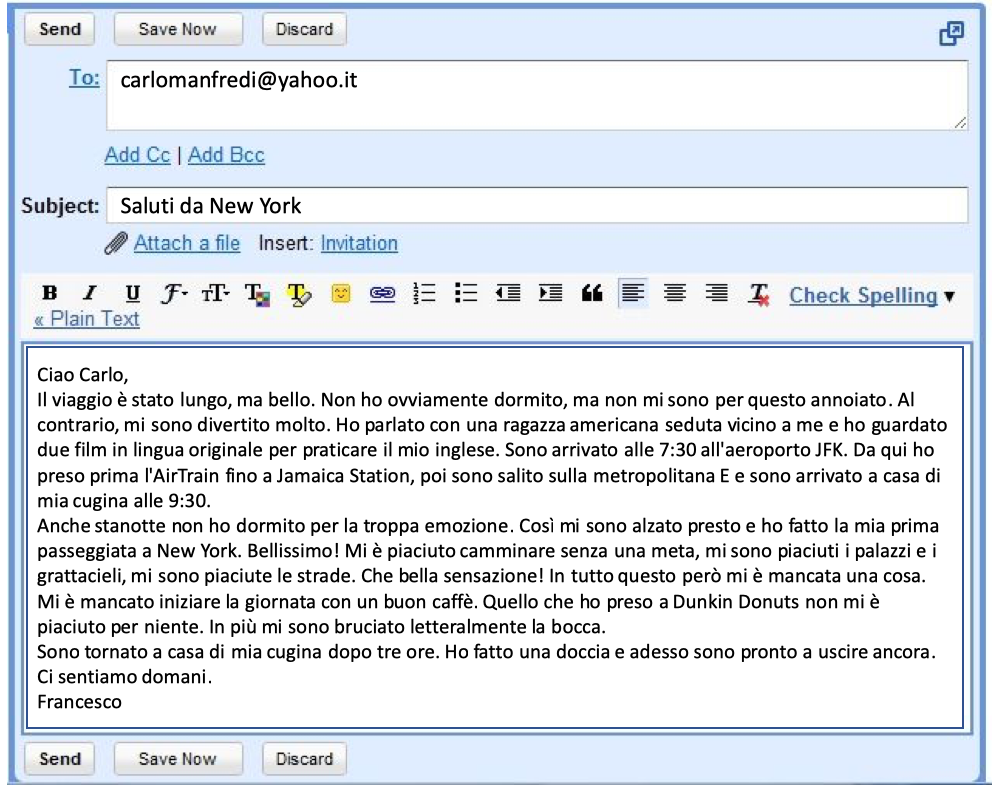I liked your party. I enjoyed myself
Read carefully the following email. |
You have probably noticed several Passato Prossimo tenses: some formed with avere, other with essere including the reflexive verbs, the verb piacere and the similar one mancare (to miss). You also found a new useful expression such as senza una meta (aimlessly), and in particular the term giornata.
In the dictionary giorno and giornata both mean the day. If giorno is generally used for indicating a date or a day of the week (see Unità 6.2), or as opposed to notte (‘night’), giornata
- is more often used for indicating with a nuance of mood an approximate period of time that goes from morning to night: Ho avuto una giornata terribile (I had a terrible day); È stata una giornata faticosa (It was a hard day); Buona giornata! (Have a good day!). It often combines with a pejorative suffix (see Unità 8.3) to clearly denoting the unpleasant day: Che giornataccia! (What a really bad day!)
- is also commonly used for referring to the weather: È una bella giornata (It’s a beautiful day), È una giornata un po’ grigia (It’s a bit of a grey day)
- is used to indicate a celebratory day: La giornata della donna (Woman’s Day); La giornata della terra (Earth Day)
| GRAMMAR
Passato Prossimo of Reflexive verbs
To make a negative sentence, you simply place non in front the reflexive pronoun: Ieri, Lia non si è lavata i capelli (Yesterday, Lia did not wash her hair), Ci siamo visti, ma non ci siamo salutati (We saw each other but we didn’t say hello). Passato Prossimo of Piacere Let’s see in detail how to work starting from what you already know.
Verbs similar to Piacere Mi manca il mare (I miss the sea) / Mi è mancato il mare (I missed the sea) [mancato because mare is sing.& m.]) Below are two other significant verbs of this kind and a sample of their use: interessare (to be interested in, to care about something): A Leo interessa lo sport (Leo is interested in sport); Non mi sono mai interessati i soldi (I never cared about money) Note: the verb servire is in this case synonym of avere bisogno di (see Unità 5.1): Ho bisogno di dieci euro (I need 10 Euros); Fortunatamente non ho avuto bisogno della medicina (Fortunately I didn’t need the medicine) |
Tasks
|
Practice
Previous> Passato prossimo con Essere
Next> Essere o Avere?